
Overview
Clusters of endocrine cells and endocrine organs are supplied by fenestrated capillaries, which greatly facilitate the entry of hormone into the blood stream. In endocrine organs these fenestrations have a nonmembranous diaphragm across the opening. Endocrine pancreas 28,000x

Endocrine cell
Clusters of endocrine cells and endocrine organs are supplied by fenestrated capillaries, which greatly facilitate the entry of hormone into the blood stream. In endocrine organs these fenestrations have a nonmembranous diaphragm across the opening. Endocrine pancreas 28,000x
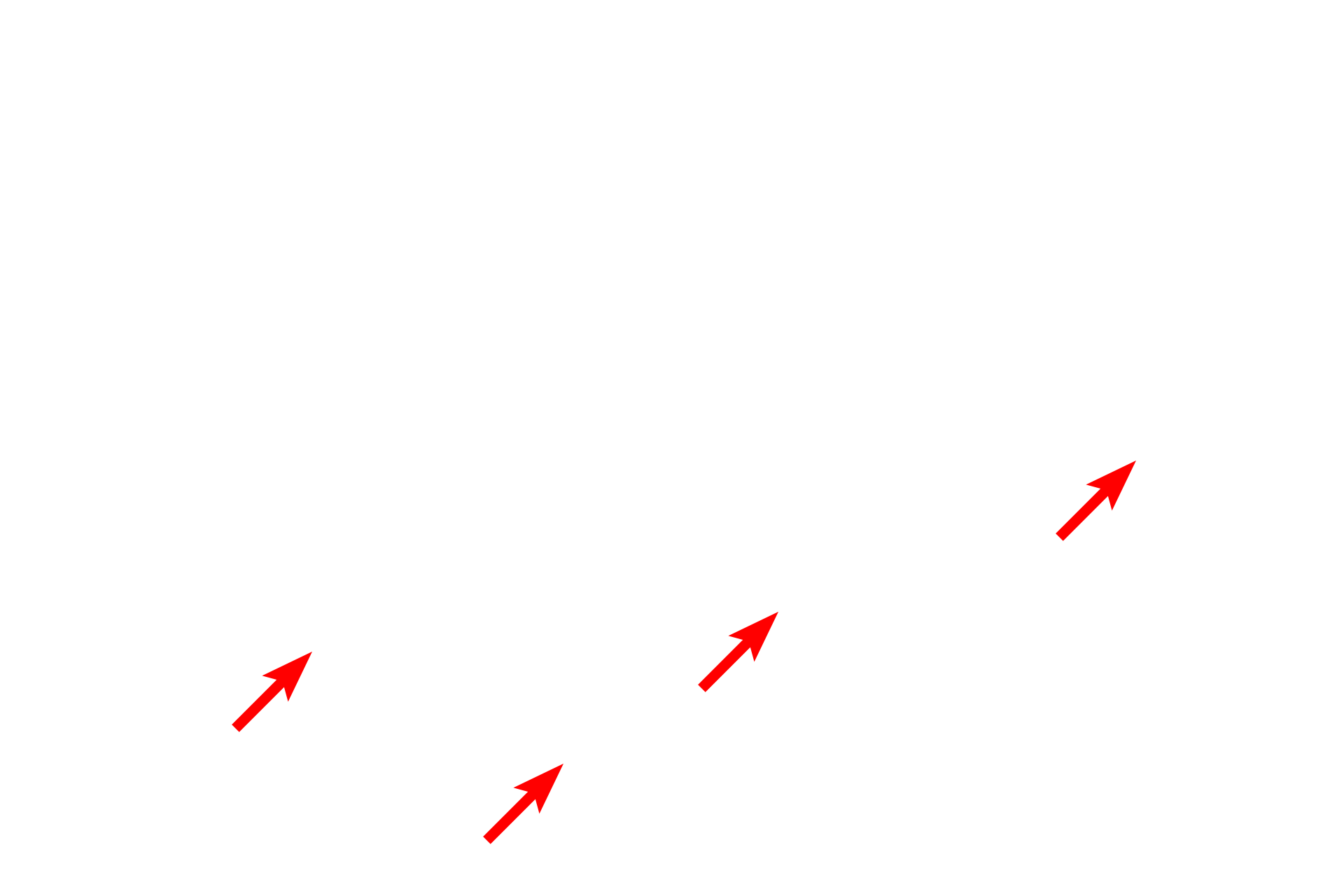
- Secretory granules
Clusters of endocrine cells and endocrine organs are supplied by fenestrated capillaries, which greatly facilitate the entry of hormone into the blood stream. In endocrine organs these fenestrations have a nonmembranous diaphragm across the opening. Endocrine pancreas 28,000x
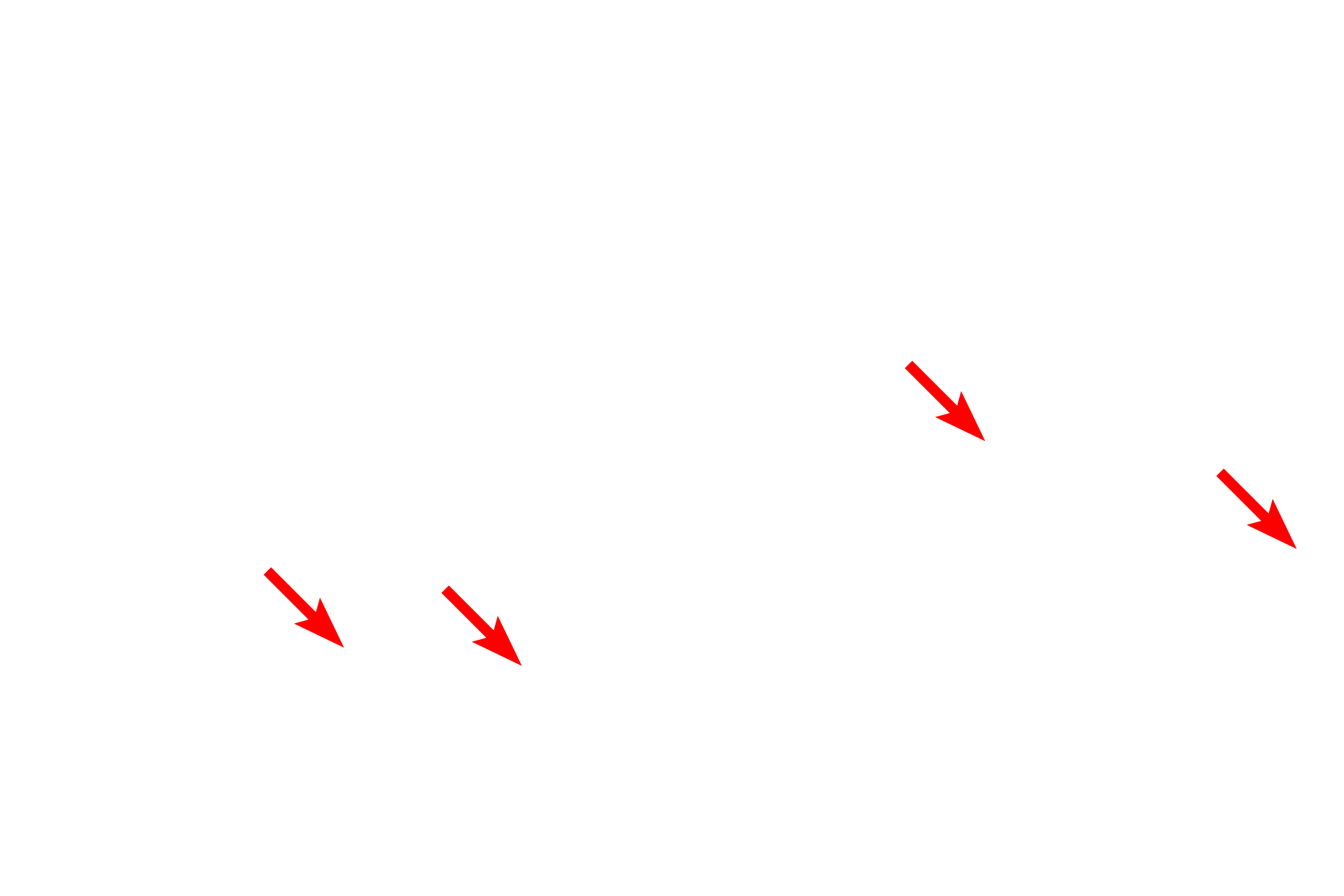
- Mitochondria
Clusters of endocrine cells and endocrine organs are supplied by fenestrated capillaries, which greatly facilitate the entry of hormone into the blood stream. In endocrine organs these fenestrations have a nonmembranous diaphragm across the opening. Endocrine pancreas 28,000x
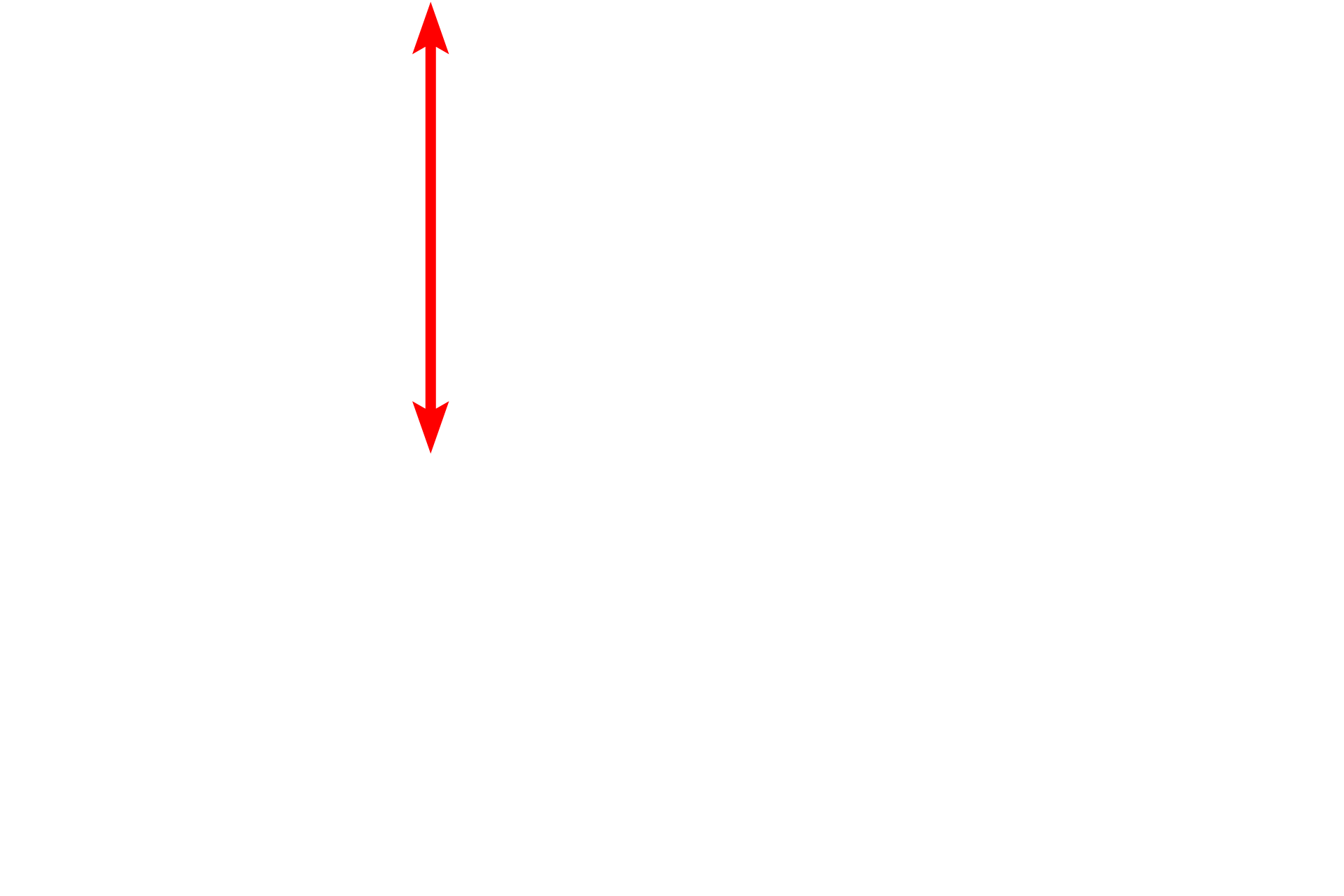
Capillary lumen
Clusters of endocrine cells and endocrine organs are supplied by fenestrated capillaries, which greatly facilitate the entry of hormone into the blood stream. In endocrine organs these fenestrations have a nonmembranous diaphragm across the opening. Endocrine pancreas 28,000x
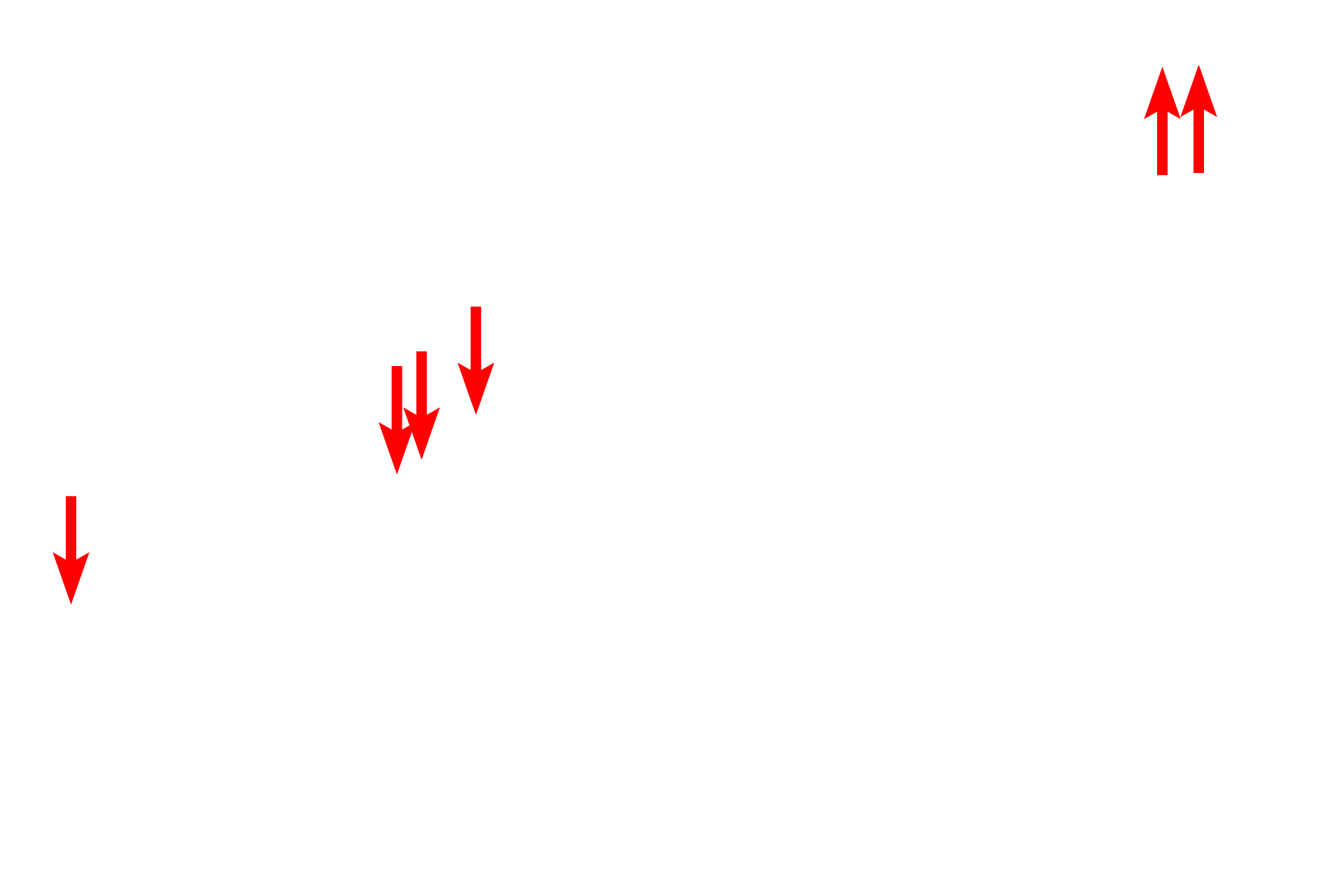
Fenestrated endothelium
Clusters of endocrine cells and endocrine organs are supplied by fenestrated capillaries, which greatly facilitate the entry of hormone into the blood stream. In endocrine organs these fenestrations have a nonmembranous diaphragm across the opening. Endocrine pancreas 28,000x
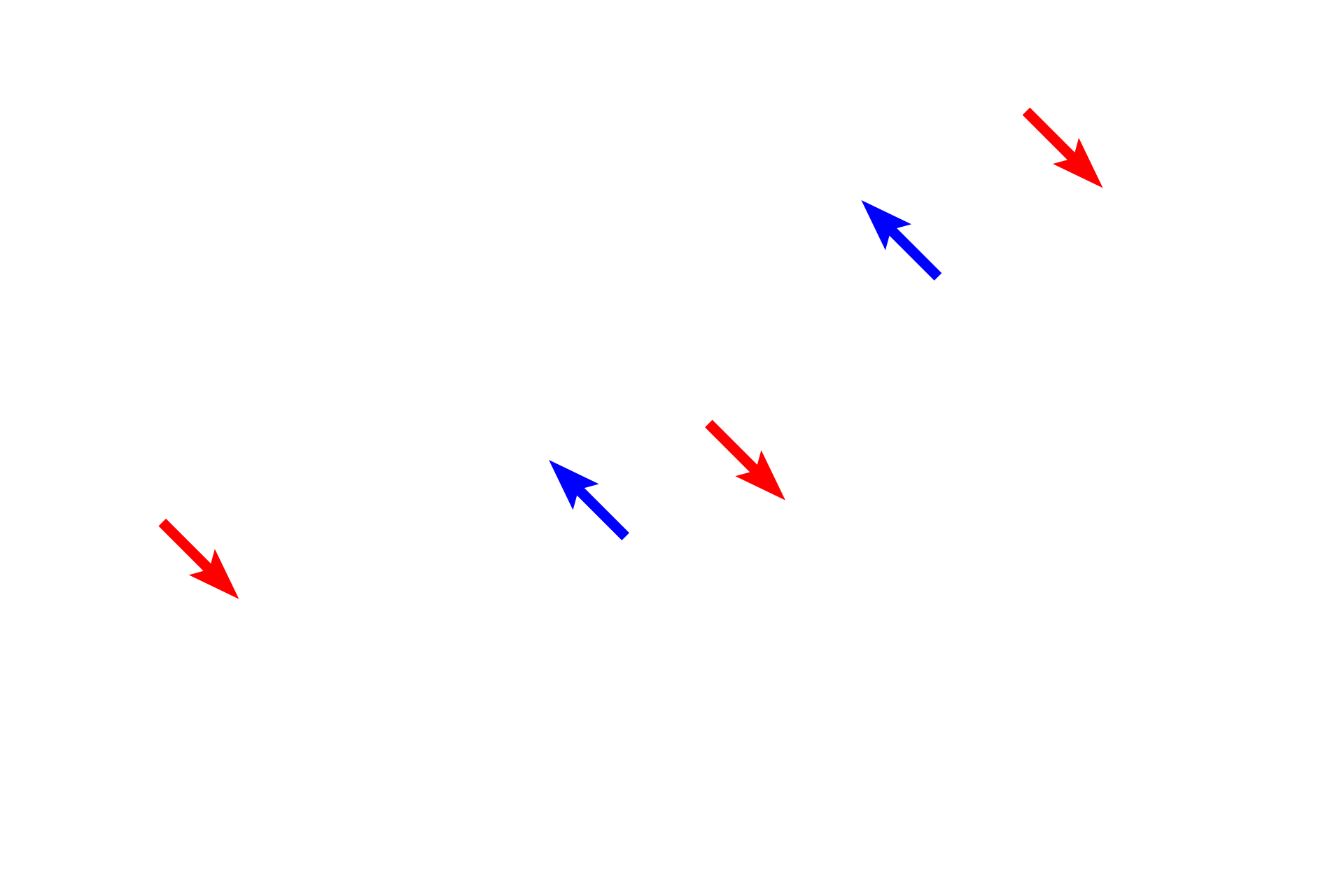
Basal laminae >
A basal lamina is present beneath the endothelial cells (blue arrows) as well as the endocrine cell (red arrows), as both are types of epithelia.
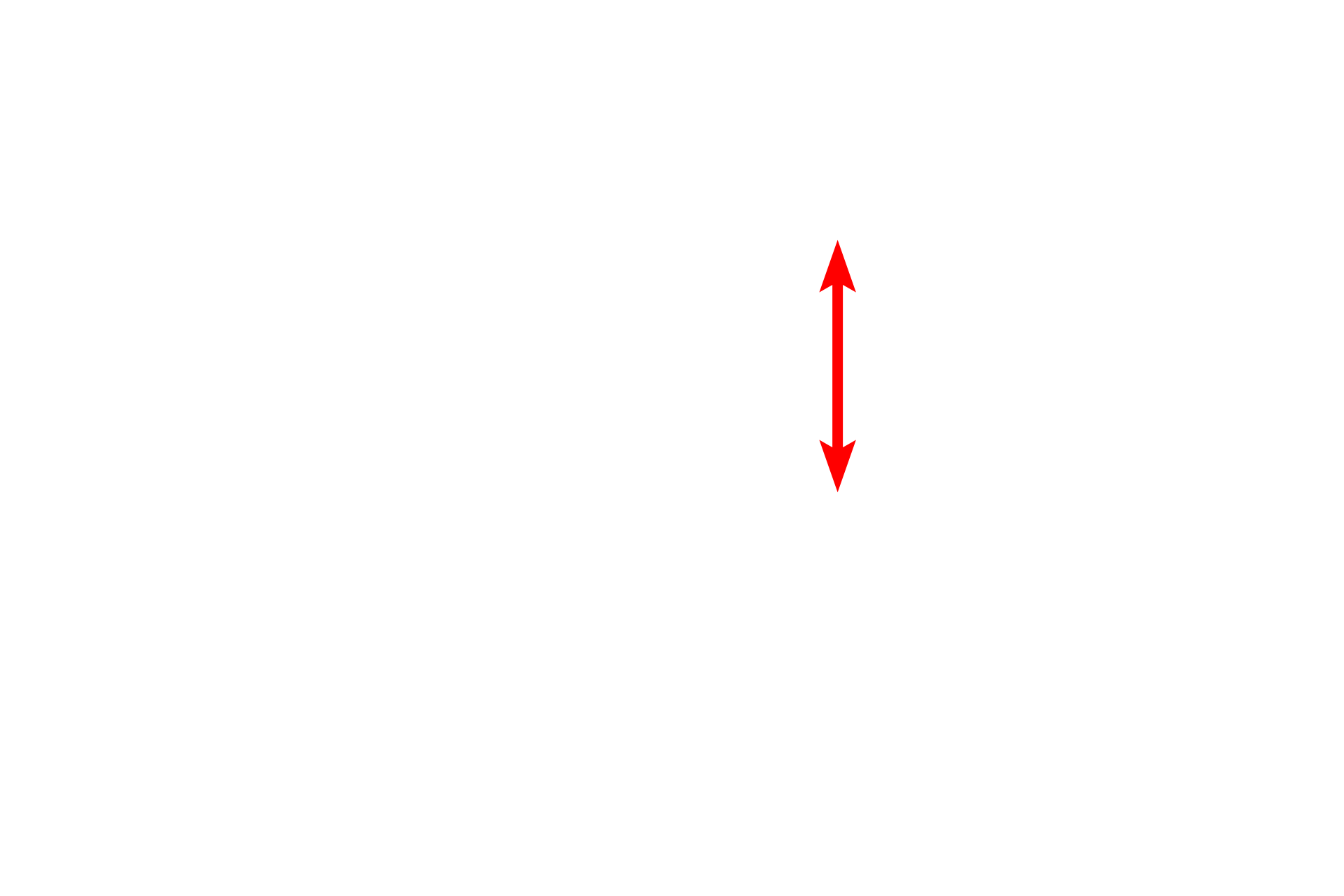
Loose connective tissue >
The space between the two basal laminae is filled with loose connective tissue.
 PREVIOUS
PREVIOUS